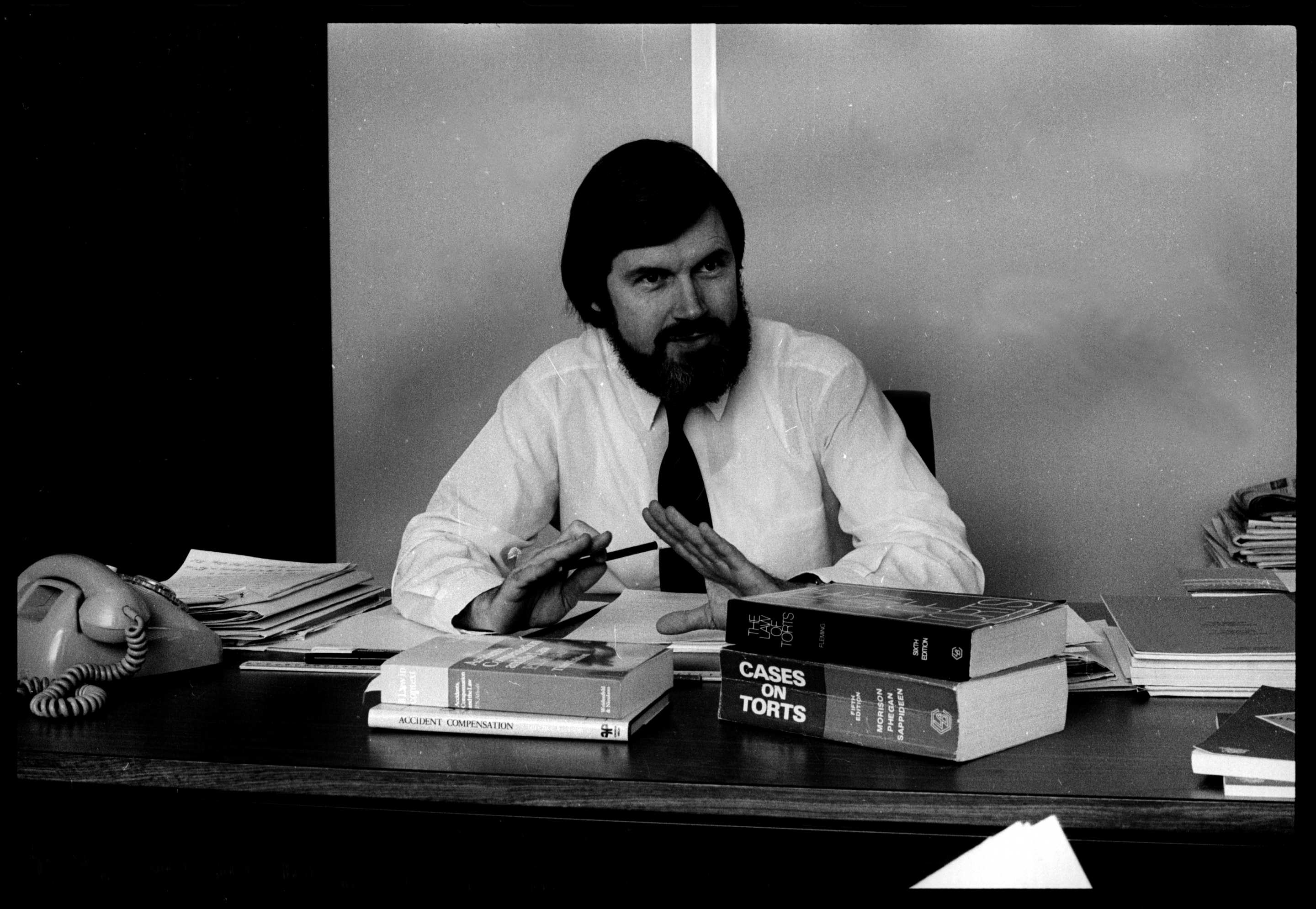Law professor inspires gift to help future students

Emeritus Professor Colin Phegan
Tom Yim says he would never have got through university without the help of Emeritus Professor Colin Phegan. Now he is honouring his former lecturer by making a gift that will help a new generation of law students.
In honour of the professor who helped him through law school, philanthropist Tom Yim has donated $195,000 to support law students.
It is Yim’s second major gift to support the Colin Phegan Lectureship, a teaching position at the University of Sydney Law School that the Yim family helped establish with an initial $180,000 gift in 2013. The lectureship is named for former law school dean, Emeritus Professor Colin Phegan.
When Yim first arrived at the University in 1969, he struggled. He had grown up in Hong Kong and English wasn’t his first language. “I had to use a dictionary for every paragraph I read,” he says. “It was a challenge and I wasn’t a good student.”
Professor Phegan noticed Yim was having trouble, pulled him aside and talked him through some of the complexities of case law. “It was just a 20-minute talk, but without it, I would never have made it through,” says Yim.
When Yim told current Dean and Head of School Professor Joellen Riley that he wanted to make a gift in Professor Phegan’s honour, she suggested he help establish a new teaching position.

Mr Andrew Dyer with alumnus and donor Tom Yin
In 2014, Andrew Dyer was appointed as the inaugural Colin Phegan lecturer. His first task was to create a course that would help first-year students in the Juris Doctor graduate degree program gain the skills and confidence needed to study law.
Dyer’s Legal Reasoning course aims to help students read cases and other legal material, and answer questions with the precision required in law exams. “A lot of people who come into law have a hard time because they just haven’t read this sort of material before and they’re not sure how to interpret it,” Dyer says.
David Helvadjian came to the law school having worked in compliance roles. He reveals “I thought I would be able to start my legal education merely by picking up a law book. However, I quickly realised I was encountering an entirely different language and approach.”
To his students, Dyer acts as a guide and translator. His approach and the way he structures the course means he can break down complex legal analysis and provide his students with the building blocks needed to be able to read a judgement correctly, apply statute, come to legal conclusions and answer a problem question – to essentially learn the language and how to approach law.
Dyer came to law after a stint working in television, acting in and writing sketch comedy for Channel Seven. His background in drama has only added to the success of the course and won him the respect of his students.
“Andrew’s theatrical teaching style reminds students that the law, rather than existing in the abstract, is found in firecracker mishaps at night markets and calamities in ticketed car parks. In this way, Legal Reasoning brought the law back within our grasp,” says Juris Doctor student, Eleanor Makeig.
Yim’s latest gift will ensure Dyer can continue his work. The new course has been a hit with students. Dyer is particularly pleased about the feedback from international students of non‑English-speaking backgrounds.
“Many of them have said the tutorials have been particularly helpful because they’re coming from totally different societies where there is a different legal culture,” he says. “They’ve told me it’s really helped them understand what’s required at law school in Australia.”
For a majority of students, the important skills gained in Legal Reasoning have carried over throughout their degrees.
“The legal reasoning techniques Andrew taught were not limited in application to the contracts and torts subjects. The reasoning methods he instilled were critical in helping me successfully complete other first-year subjects, such as criminal and public law. And, I continue to draw upon Andrew’s legal reasoning techniques in my other subjects,” says student Thomas Poberezny-Lynch.
As for Yim, after graduating he practised law then moved into business and investment. “Having some background in law is extremely useful in business,” he says. “I’m so grateful that I had an education and I’m so grateful that I have an opportunity to give back.”
He is thrilled with the progress Dyer has made at the law school. “He’s giving students the opportunity to talk through issues of case law and helping them get through the mist, so to speak.
“That’s exactly how Colin Phegan helped me in those 20 minutes all those years ago.”

